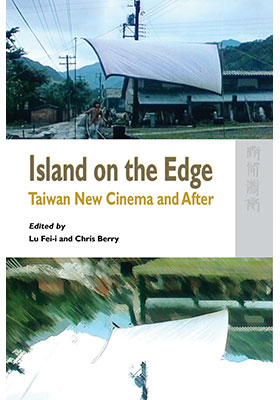Island on the Edge
Taiwan New Cinema and After
(島國邊緣:台灣新電影及其後發展)
ISBN : 978-962-209-715-5
January 2005
208 pages, 6″ x 9″
Ebooks
This is the first English-language anthology on the Taiwan New Cinema and its legacy. It is an exciting collection which covers all the major filmmakers from Hou Hsiao Hsien and Edward Yang to Ang Lee and more. Gathering a range of essays that analyze individual films produced since the advent of the Taiwan New Cinema in the early 1980s, it aims to complement Feii Lu’s Taiwan Cinema: Politics, Economics, Aesthetics, translated by Chris Berry (Duke University Press and Hong Kong University Press, forthcoming).
Taiwan and its internationally renowned cinema are “on the edge” in more ways than one. For all of its history the island has been on the edge of larger geopolitical entities, subjected to invasions, migrations, incursions, and pressures. On the other hand, as one of the “Little Tiger” economies of Asia, it has been on the cutting edge of the Asian economic boom and of technological innovation; in recent years it has pioneered democratization of authoritarian regimes in East Asia.
“As the first English-language anthology on Taiwan New Cinema, this is truly a groundbreaking work. The editors have assembled a collection of insightful essays by a group of well-informed and critically astute scholars. The book is essential reading for anyone who wishes to acquire an in-depth understanding of Taiwanese cinema, or more broadly, transnational Chinese-language cinema.” —Sheldon H. Lu, Professor of Comparative Literature and Film Studies, University of California at Davis
“This comprehensive anthology brings out a new perspective on the study of Taiwan cinema. For those who want to go beyond the Taiwan New Cinema movement and explore what happened during the past twenty years, they might begin with this book. It is, without doubt, a major contribution to the long-neglected territory in film history.” —Ru-Shou Robert Chen, Associate Professor and Head of the Graduate School of Applied Media Arts, National Taiwan University of Arts


